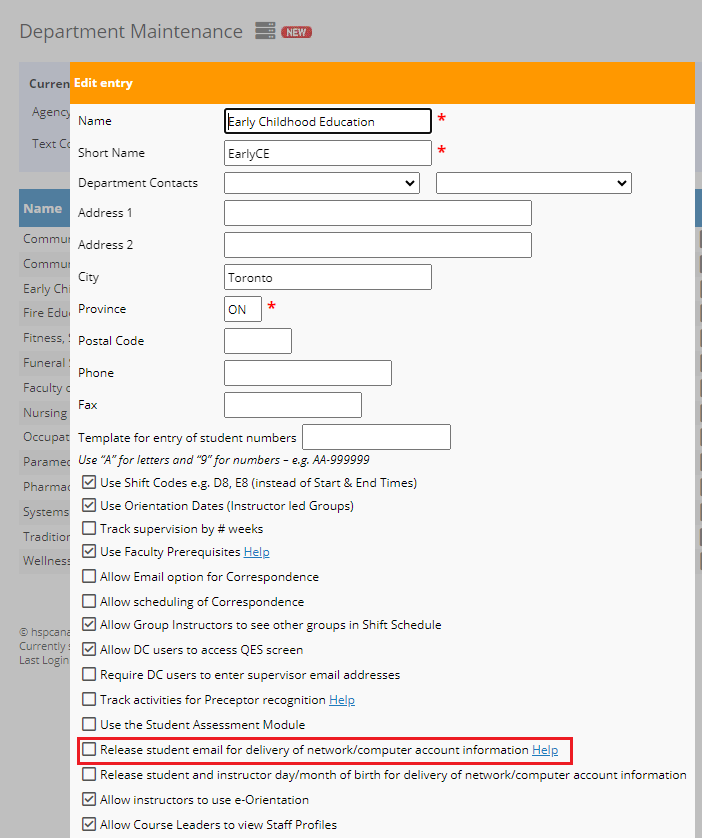IT Provisioning - Release of Student Emails for Computer Access
Placing Agency Related Guide (PARG)
Summary:
Placing Agencies are able to release student emails to be visible to Receiving Agencies by enabling the feature in Department Maintenance.
Background:
Many receiving sites issue computer/network accounts to students, and a secure, direct mechanism is required for delivering their account information and passwords. Receiving Coordinators use the Security/Access wizard to generate a list of students who are assigned to upcoming, confirmed placements and who require access to computer networks and/or the electronic patient record. The wizard report includes student names, their HSPnet ID number (to uniquely identify each student), placement location, and dates. If a Receiving Coordinator runs the wizard with a specified purpose of “managing computer/network access”, then each student’s primary email address in HSPnet will be included in the report.
| Note that release of student email addresses via the Security/Access wizard is not automatic. Placing Agencies may activate the feature to release student email addresses, at the request of sites that need this information to deliver account information for computer access. If sites in your province have asked your school to enable this feature, you can do so by marking the checkbox in Department Maintenance. |
Please note the following guidelines and safeguards that exist for release of student email addresses via the Security/Access wizard:
- Only the primary email address is released; this is normally the email address issued by the school. We recommend against entering personal email addresses (e.g. Hotmail) as a student’s primary email.
- Student name and email address are not released unless the placement is accepted by the site AND confirmed by the school.
- The wizard report includes a strong warning to limit use of the student’s personal information to managing computer access.
- Each use of the Security/Access wizard by Receiving Coordinators is tracked for audit purposes, and the audit data is reviewed by the national Data Stewardship Committee on a semi-annual basis.

